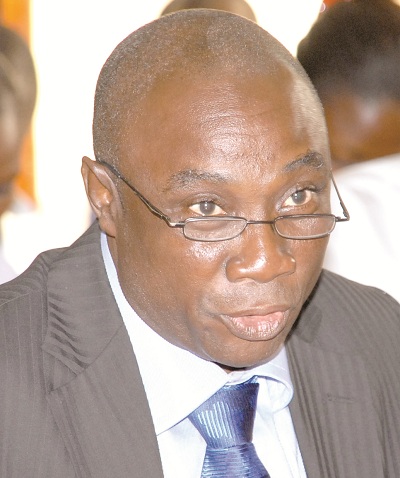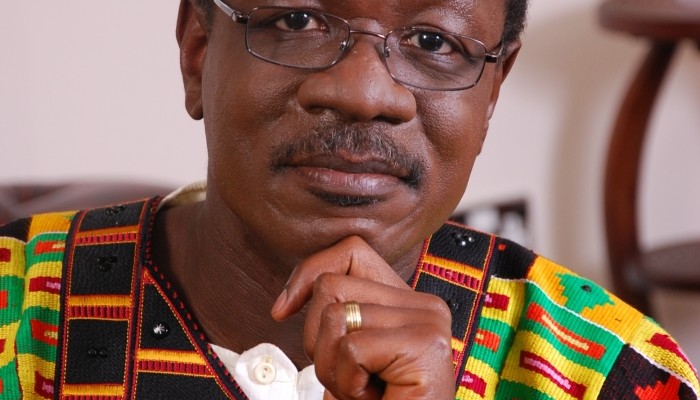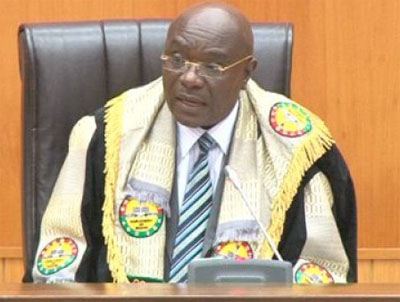‘Dumsor dumsor’: Ghanaian businesses lose $62m monthly
- Posted on
- Comment
 The recent unpredictable power supply in the country is continually pushing the cost of doing business further up and subjecting domestic consumers to live with the discomfort of the power outages and its attendant effect on the prices of goods and services.
The recent unpredictable power supply in the country is continually pushing the cost of doing business further up and subjecting domestic consumers to live with the discomfort of the power outages and its attendant effect on the prices of goods and services.
According to a research conducted by Databank Financial Services Ltd mid this year, the power outages compelled companies to incur unplanned operating costs of about US$62 million per month or US$744 million per annum due to the use of privately acquired generators.
The economic costs of inadequate power supply cannot be underestimated. The 2010 Wholesale Power Reliability Assessment report estimated that Ghana loses between 2 to 6 per cent of GDP annually, not including a number of indirect costs of lost economic output, due to insufficient wholesale power supply.
President of the Association of Ghana Industries (AGI), James Asare-Agyei, in an interview said: “The continuous power outages have brought a lot of costs in respect of machine failure, workers going idle or being laid off and other challenges which must be resolved in 2015.” He said government should look for a medium- to long-term solution to the energy crisis so that “we come out of this yearly cyclical load shedding phenomenon which is not helping industry.”
Analysts have also pointed at the erratic power supply as being the root cause for companies like Newmont Ghana, Tema Chemical Ltd, Blue Skies Products (Ghana) Ltd, Super Paper Products Ltd, and Anglogold Ashanti for laying off employees and/or shutting down completely.
However, energy experts have expressed their worry about the 2015 Budget’s scanty attention to addressing the energy problems bedeviling the nation. According to a statement issued by the Africa Centre for Energy Policy (ACEP) and signed by its Executive Director, Mohammed Amin Adam: “The Budget fails to address energy sector challenges and raises accountability concerns.”
The statement noted that whilst the country was in “darkness for the most part, the only generation projects expected on stream this year and early 2015 are the Kpone Thermal Power Plant and TICO Expansion projects, which together will add 330MW.”
The statement deemed the Budget’s proposed projects as “not ambitious enough considering that Ghana has a current shortfall of about 300MW and annual demand growth equivalent to about 200MW, and a reserve margin of 250MW.”
“All Ghanaians are expecting government to bring the current load shedding of electricity to an end. But we are disappointed that there is no serious programme in the budget to address the power crises; except the usual unfulfilled promises of new power infrastructure investments by some private companies, who have no financial capacity and who only experiment with our Power Purchase Agreements,” the statement read.
Even though the Aboadze Thermal Plant, early this week, received its first gas (30mscf) from the Atuabo Gas Processing Plant to generate some 125MW of power to shore up the country’s energy needs, ACEP noted that, “this will not add to generation capacity as Ghanaians are made to believe.”
Ghana’s energy sector has been bedeviled with the inability of power producers to meet growing demand. The current state of the sector dates back to 1982, when drought reduced the capacity of the Akosombo Dam, the main power plant then. The situation improved after four years but recurred in 1994, 1998, 2006 and has been worsening since 2010.
Ghana’s current electricity demand stands at about 2300 megawatts (MW) and the country’s energy demand grows by an estimated annual capacity of about 200MW, according to the Ministry of Energy.
The problem with Ghana’s power sector is not installed capacity but among others the inability of the plant to operate at full capacity. The existing power plants are unable to attain full generation capacity as a result of limitations in fuel supply owing to rising fuel prices and uncertainty in rainfall and water inflows into the hydroelectric power facilities.
The country’s energy mix is made up solar, thermal and hydro. The hydro generation is dominated by the Akosombo Dam, which supplies about 1,020MW of energy, followed by the Bui Dam, which produces 90MW and Kpong Hydro Dam producing 160MW. The Aboadze Thermal Plant now produces 360MW and the Takoradi Thermal Plant 330MW (production will be increased by an additional 110MW when expansion work on the plant is completed early 2015).
Ghana’s first solar plant at Punga in the Upper East Region also produces 2MW (a further 12 MW of electricity will be generated when the solar plant in the Upper West Region is completed), giving the country a total of 1,962 MW of electricity supply although the country has a total installed capacity of 2884.5MW currently. (A further 220MW of thermal energy will be added to thermal energy stock when the Kpone Thermal Plant comes off). Nonetheless, the country energy deficit still stands at about 300MW.
Just last week, residents of various suburbs of Accra, Nsawam and Adoagyeri – who complained of having their electrical appliances damaged as a result of the persistent power cuts – embarked on demonstrations with some going on rampage by blocking roads and destroying property owned by the Electricity Company of Ghana (ECG).
By the close of the week, President Mahama relieved the Managing Director of the ECG, Reverend Ing. William Hutton-Mensah and appointed Robert Dwamena as acting Managing Director of the Company. Over the weekend the President again created a new Ministry of Power and nominated Dr Kwabena Donkor as Minister-Designate for the newly created Ministry.
In a statement signed by Chief of Staff, Prosper Bani said: “The President expects the new Ministry to bring about a sharper focus on the generation, supply and efficiency of power to match the growth the economy is experiencing. The new Minister will be expected to mobilise all human and material resources available to resolve the current challenges facing the power sector.”
Experts and the minority have questioned the essence of the president’s action. According to them creating a new ministry when the Ministry of Energy and Petroleum could perform the same function will not help solve the current challenges facing the sector.
The World Bank believes Ghana has the right power policies but is failing to implement them and run the sector efficiently.
The US$1 billion West Africa Gas Pipeline Project was generally believed to have the long term solution to the power crisis. The pipeline was expected to provide regular affordable gas supplies to power Ghana’s thermal plants. However, the project has failed to deliver and has necessitated in Ghana finding its own localized gas solutions.
According to Sunil Mathrani (Senior Energy Specialist at the World Bank Ghana office) the quantum of debt and the interlock of debt of ECG, GRIDCo, VRA and Ghana water are seriously dragging down the sector and government should seriously look at this problem which has gotten worse in recent years.
But ensuring uninterrupted supply of power should not be much of a problem, especially when Ghana’s electricity demand does not exceed installed capacity. Ghana finds itself in this situation because of the inability of the power plants to operate at full capacity due to low levels of water and inadequate fuel (gas) supply.
According to the World Bank, the “solutions to the sector’s problems are well known; the challenge is to carry them out. Proactive leadership of the energy sector, with a focus on efficiency and timely delivery, is crucial to Ghana’s ambitions for economic growth.”
Until then, Ghanaian industries, businesses and the general public would continue to swing in uncertainty while the power crisis persists.
By Raju Raghu Parwani










 (Selorm) |
(Selorm) |  (Nana Kwesi)
(Nana Kwesi)